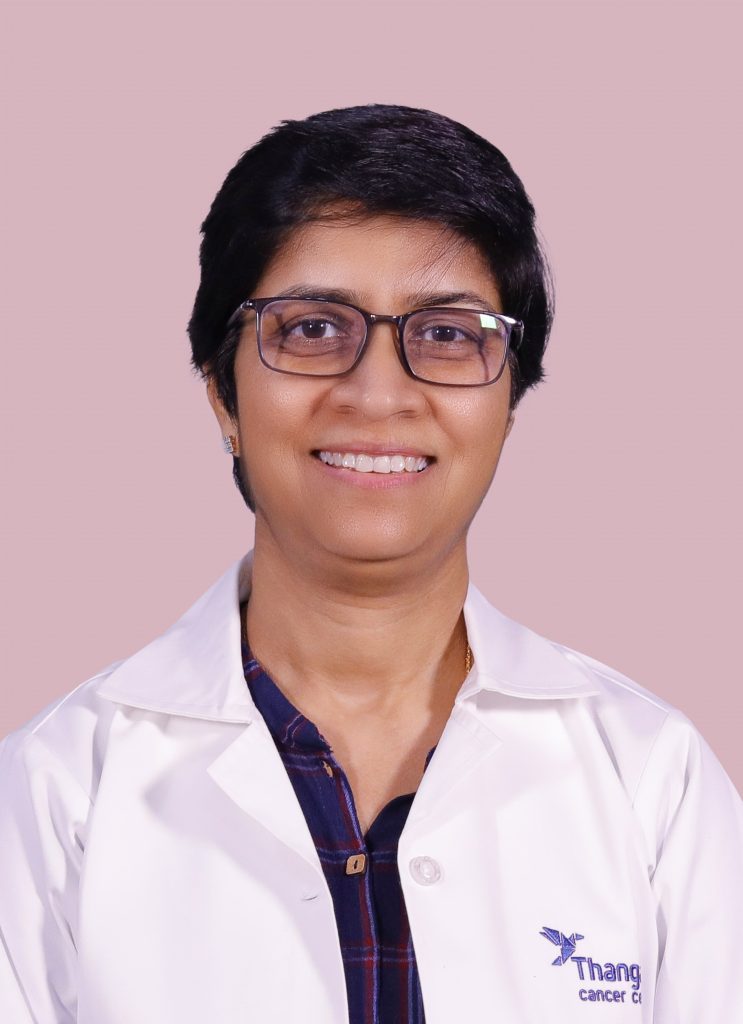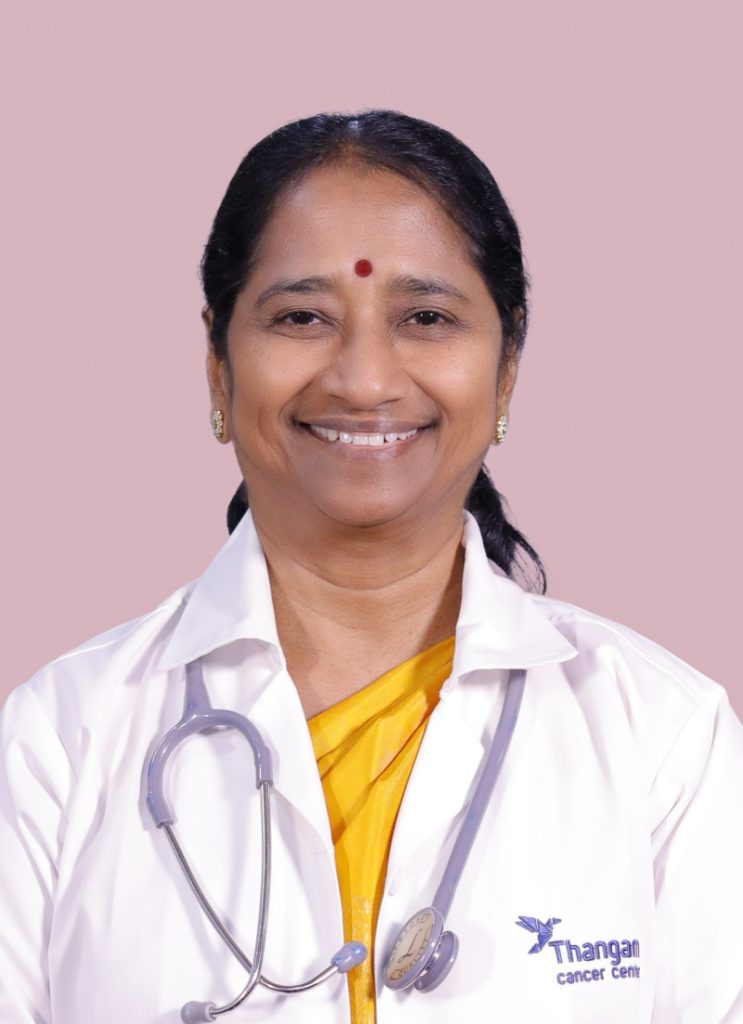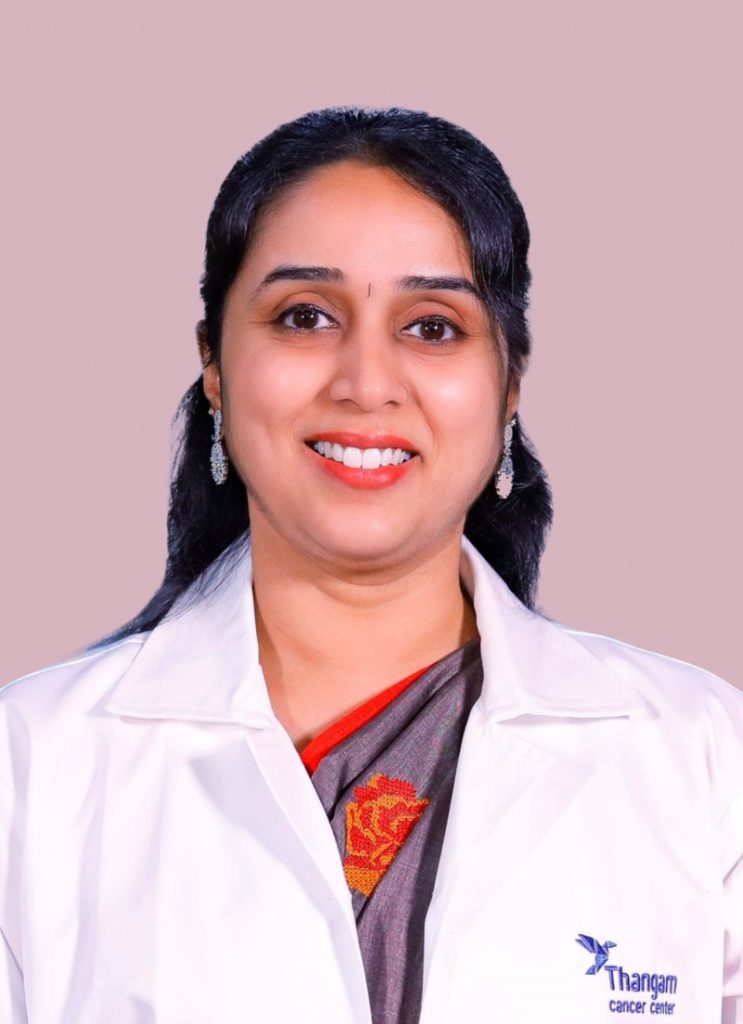BREAST CANCER

Breast Cancer Care at Thangam Hospital
Breast cancer is the most common cancer affecting women globally and remains one of the leading causes of cancer-related deaths in women. However, thanks to advancements in early diagnosis and modern treatment strategies, survival rates are improving significantly.
At Thangam Hospital, we offer comprehensive breast cancer diagnosis, treatment, and care, supported by a multidisciplinary team of expert oncologists, surgeons, and support staff.
Recognizing the Symptoms of Breast Cancer
Early detection plays a crucial role in improving breast cancer outcomes. Common symptoms of breast cancer include:
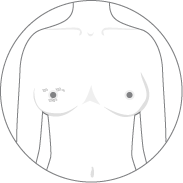
Lump in the breast:
A painless lump or thickening in the breast tissue that was not present before.

Changes in breast shape or size:
Sudden asymmetry, shrinkage, or unusual fullness.
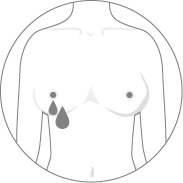
Nipple discharge or changes:
Bloody discharge, nipple retraction, or inversion.
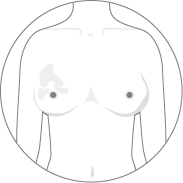
Skin changes:
Peeling, scaling, dimpling, or a texture resembling an orange peel.
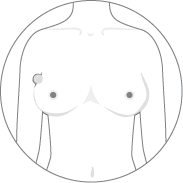
Lumps in the armpit (axilla):
Swelling or presence of nodules near the underarm.
In advanced stages, symptoms may include persistent back pain, chronic cough, breathlessness, and loss of appetite.
Causes and Risk Factors of Breast Cancer
Breast cancer is closely linked to hormonal imbalances, particularly involving estrogen and progesterone.
Risk factors are categorized into non-modifiable and modifiable:
Non-Modifiable Risk Factors
Gender
Women are at a higher risk, though men can also develop breast cancer (approximately 1% risk).
Age
Risk increases with advancing age.
Family history & genetics
5–10% of breast cancers are hereditary, most often linked to BRCA1 and BRCA2 gene mutations.
Hormonal exposure
Early menstruation (menarche) and late menopause increase lifetime estrogen exposure.
Dense breast tissue
Women with dense breasts or a history of breast lesions (like atypical hyperplasia) are at higher risk.
Radiation exposure
Prior chest radiation, especially in younger patients, can increase risk later in life.
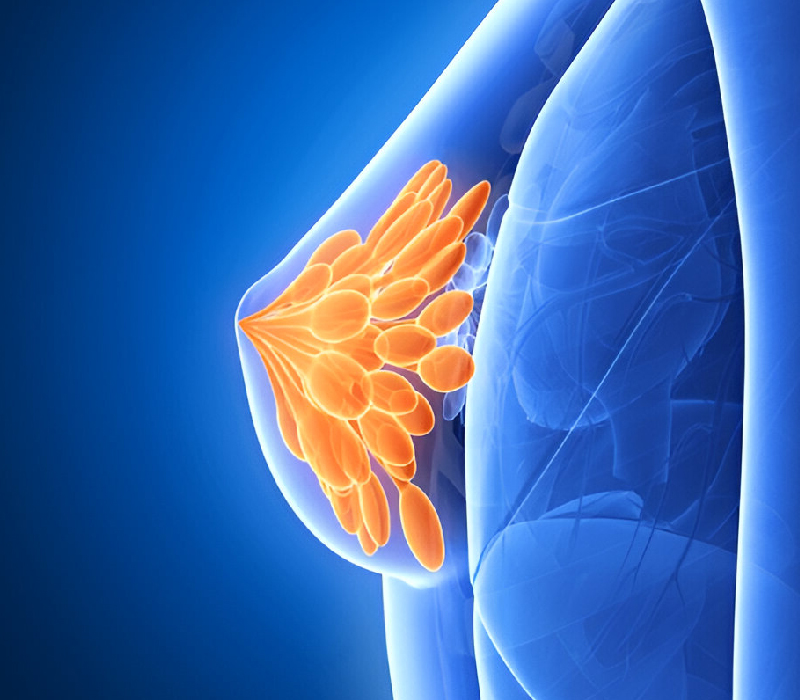

Modifiable Risk Factors
Obesity
Particularly post-menopause, excess fat increases estrogen levels.
Physical inactivity
A sedentary lifestyle contributes to weight gain and cancer risk.
Alcohol consumption
Even moderate alcohol intake is linked to increased risk.
Hormone therapy
Prolonged use of hormone replacement therapies or supplements can elevate estrogen levels.
Breast Cancer Prevention and Early Detection
At Thangam Hospital, we emphasize the importance of prevention and early screening to reduce the impact of breast cancer.

Lifestyle Changes for Prevention

Maintain a healthy
weight

Engage in regular physical activity

Limit or avoid
alcohol

Choose a balanced, nutritious diet
Breast Cancer Screening Methods
Self-Breast Examination (SBE)
Women aged 20 and above are encouraged to perform monthly self-checks to detect changes early.
Clinical Breast Examination (CBE)
A thorough breast exam by a medical expert, recommended annually from age 30.
Mammogram
A specialized breast X-ray used to detect early abnormalities. Recommended annually or biennially for women aged 40 and above.
Breast MRI
Used for high-risk individuals with strong family history or confirmed genetic mutations.
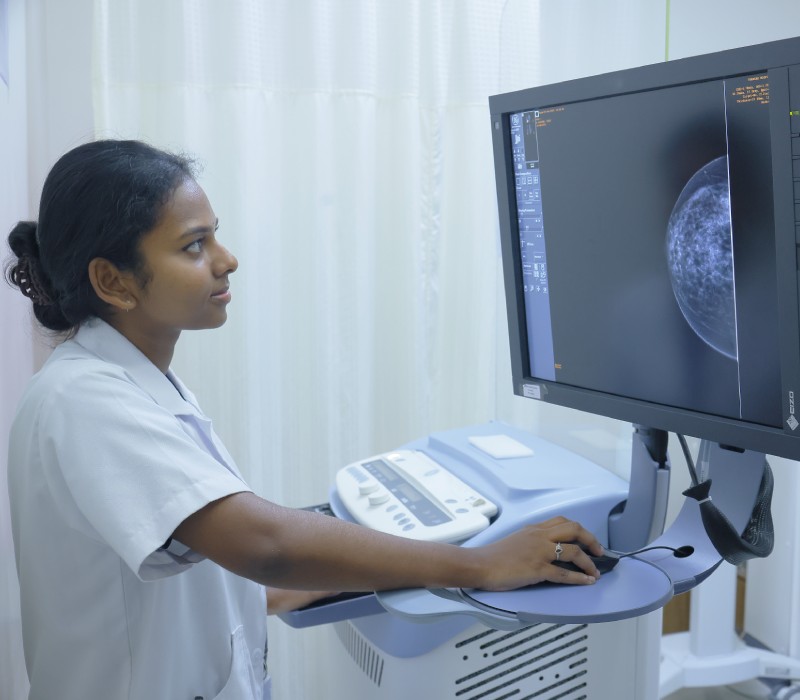
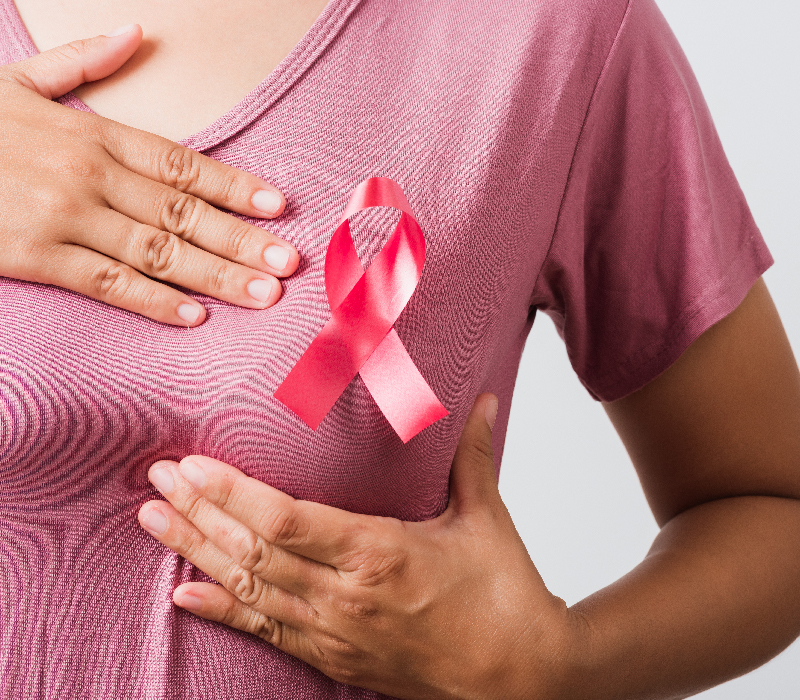
What to Do if You Discover a Lump
Not every breast lump is cancerous, but it’s vital to get it evaluated by a specialist.
Clinical Examination by a specialist
Imaging
Ultrasound (recommended for women under 40)
Mammogram (preferred for women 40+ or as needed)
Biopsy
A minimally invasive procedure to extract tissue for lab analysis and confirm the presence of cancer.
Breast Cancer Treatment at Thangam Hospital
Our approach to breast cancer treatment is personalized, multidisciplinary, and globally aligned with best practices. Once diagnosed, we determine the cancer stage using advanced imaging (Chest X-ray, CT, PET-CT, Ultrasound) to plan a treatment path.
Mastectomy: Removal of the entire breast and surrounding lymph nodes.
Breast Conservation Surgery (BCS): Removal of the tumor with preservation of the breast, combined with radiation therapy.
Breast Reconstruction: Cosmetic breast reconstruction using pedicle flaps or free flaps for improved appearance and emotional recovery.
Administered to target cancer cells in the body. Modern regimens have reduced side effects and are customized to each patient’s health and cancer type.
High-energy radiation (X-rays or proton therapy) is focused on the affected area to destroy remaining cancer cells and prevent recurrence.
Recommended based on hormone receptor status (estrogen/progesterone) to block or reduce the effect of hormones on cancer growth.
If HER2-positive, specific medications are used to target HER2 proteins and block their role in tumor growth.

